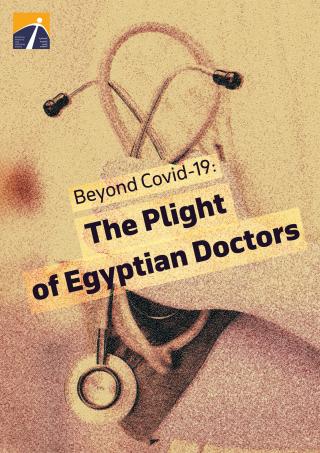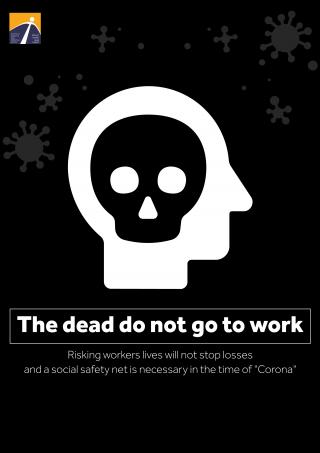The Egyptian Initiative for Personal Rights (EIPR) issued a policy paper entitled “Before and after Covid… the plight of Egyptian doctors”, which reviews the problems faced by physicians in particular and medical teams in general in Egypt, and pro
Campaigns: The EIPR response towards Corona pandemic
The COVID-19 pandemic, also known as the coronavirus pandemic, is an ongoing pandemic of coronavirus disease 2019 (COVID‑19) caused by severe acute respiratory syndrome coronavirus 2 (SARS‑CoV‑2). The outbreak was identified in Wuhan, China, in December 2019.
Lack of retention of Egyptian doctors is a crucial issue at stake. Investigating the roots of the problem necessitates an extensive situation analysis of doctors’ working environment and conditions, which touches upon other Health System Building Blocks, like Health Financing, Governance and Leadership, Access to Medicines and Service Delivery. Defects in mentioned building blocks mean less incentives for doctors retention in the public sector and, arguably, the country.
Health workers are the front line in the fight against Covid-19, and they face the various risks of infection more than others. These risks include exposure to infection from patients, heavy workload for long hours, personal protective equipment for extended periods of time, and facing violence. They sometimes abuse by patients or their families without adequate protection.
EIPR stresses the importance of equitable distribution of vaccines among citizens, and commitment to full transparency in clarifying the basis on which the vaccine will be distributed, because justice and transparency are the way to gain citizens' confidence in responding to the state's directives during the vaccination process of the Covid-19 vaccine.
And because monitoring clinical trial procedures in general, and this important experiment in particular, is part of the role of civil society, a member of the EIPR team volunteered and joined this clinical trial. He followed the procedures and was registered among the trial participants after completing and fulfilling the conditions for participation.
EIPR will be advocating and supporting the adoption of all global policies that would ensure equitable access to medications, technologies and information for all, during this pandemic and beyond as part of its continuous quest to ensure the insurance of the Right to Health for all.
The following points attempt to draw a picture of the labor market in Egypt, and point out its key shortcomings and imbalances, which are exacerbated with the crisis of Covid-19. The crisis, at the same time, opens a door for discussion and redress for some of these imbalances. The Egyptian law allows any employer to fire his employees, without any compensation or pension. When a worker gets sick, and he is the provider for his family, he often does not have health insurance that guarantees his treatment.
In the year of the pandemic, as the World Health Organization called it last March, when millions lose their jobs and their basic living, the government chooses to cut spending on food subsidies. Despite the exhaustion of the health system, headed by doctors and nurses in government hospitals, the government chose to complete its neglect of the constitutional minimum spending on health.
The Egyptian Initiative for Personal Rights (EIPR) called on the Ministry of Interior and the Prisons Authority to assume their legal responsibility in providing the simplest forms of human contact in light of the continued suspension of visits for prisoners’ families, consistent with the rights stipulated in the Prison Regulation Law. EIPR demanded that the ministry and the Prisons Authority allow detainees and prisoners to communicate with their families and lawyers.
The proposal was prepared in cooperation with the Ministry of Health and Population in 2014 and stresses the basic conditions for ensuring the formation of a council that will achieve a radical and sustainable reform of the governance of the health care system. EIPR stresses the importance of respecting these conditions while working on the law proposal. Through this paper, EIPR presents again the proposed law submitted in 2014, an explanation of it and a proposal for its formation and mechanisms of action.





